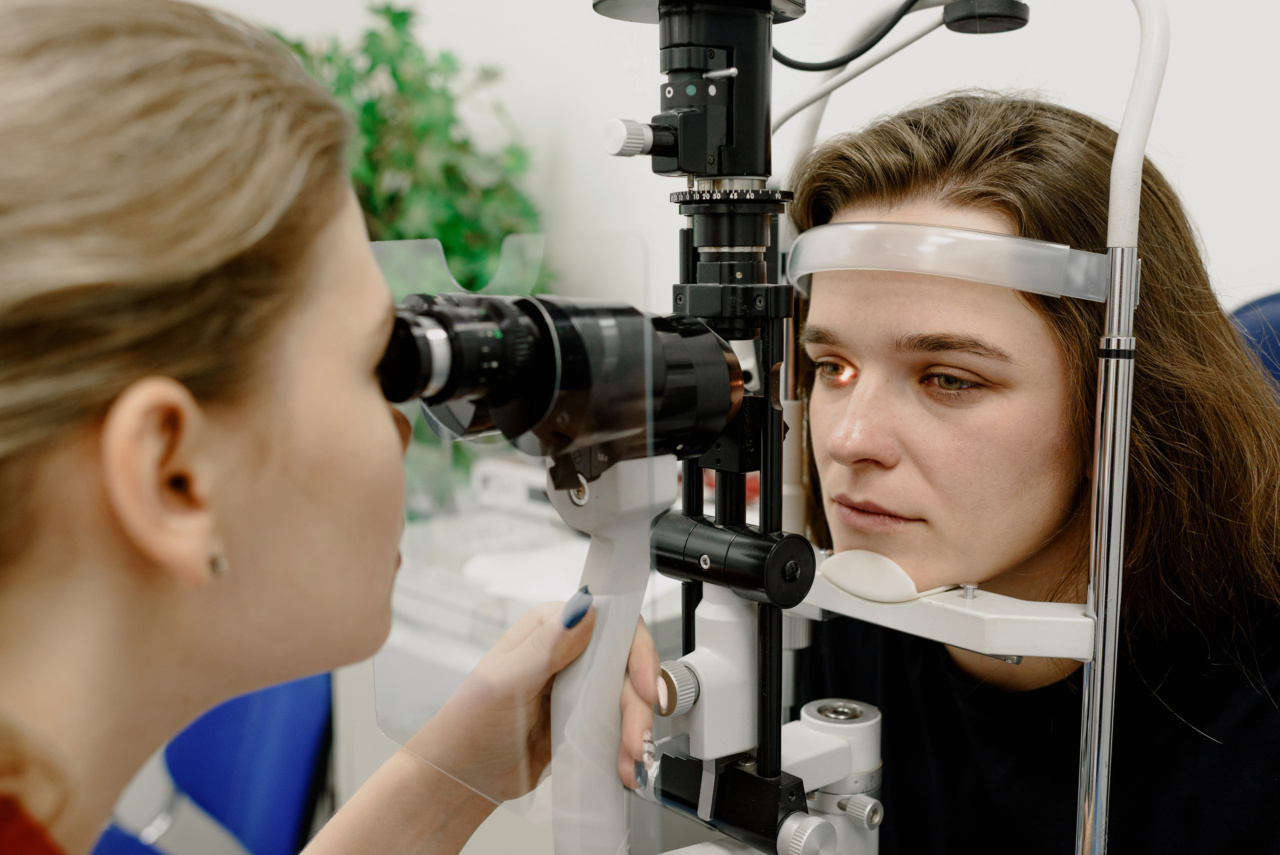Blurry vision is a common visual problem that can affect people at any age.
It can be caused by a variety of factors, including a change in prescription for glasses or contact lenses, eye strain, dehydration, allergies, and diseases such as diabetes and hypertension.
Causes of Blurry Vision
1. Refractive Errors.
Refractive errors occur when the shape of the eye prevents light from focusing correctly on the retina. Common refractive errors that cause blurry vision include nearsightedness, farsightedness, and astigmatism.
2. Presbyopia.
Presbyopia is a common age-related condition that affects the ability to focus on objects up close. As we age, the lenses in our eyes become less flexible and less able to change shape, making it harder to see objects up close.
3. Cataracts.
Cataracts are a common cause of blurry vision, especially in older adults. Cataracts occur when the clear lens in the eye becomes cloudy, making it difficult to see clearly.
4. Glaucoma.
Glaucoma is a group of diseases that damage the optic nerve, which sends visual signals from the eye to the brain. If left untreated, glaucoma can cause permanent vision loss.
5. Macular Degeneration.
Macular degeneration is a condition that affects the macula, the part of the retina responsible for central vision. As it progresses, it can cause blurry or distorted vision, as well as blind spots or dark spots in the center of the visual field.
6. Diabetes.
Diabetes can damage the blood vessels in the retina, causing a condition called diabetic retinopathy. This condition can cause blurry or distorted vision, as well as blind spots or dark spots in the visual field.
7. Hypertension.
High blood pressure can cause damage to the blood vessels in the eyes, leading to a condition called hypertensive retinopathy. This condition can cause blurry or distorted vision, as well as blind spots or dark spots in the visual field.
Treatment for Blurry Vision
The treatment for blurry vision depends on the underlying cause. For many people with refractive errors, wearing glasses or contact lenses can help improve vision. Other treatments may include surgery, medication, or lifestyle changes.
1. Glasses or Contact Lenses.
If your blurry vision is due to a refractive error, wearing glasses or contact lenses can help correct it. Your eye doctor can perform a comprehensive eye exam to determine the correct prescription for you.
2. Surgery.
If your blurry vision is due to cataracts, glaucoma, or another eye condition, surgery may be necessary. Cataract surgery involves removing the cloudy lens in the eye and replacing it with an artificial lens.
Other types of surgery may be needed to repair damage to the eye or improve eye health.
3. Medications.
If your blurry vision is due to an underlying medical condition, such as diabetes or hypertension, medication may be necessary to manage your symptoms and prevent further damage from occurring.
4. Lifestyle Changes.
If your blurry vision is due to eye strain or dehydration, making lifestyle changes can help. Taking regular breaks from the computer screen, drinking enough water, and getting enough sleep can help reduce eye strain and improve vision.
Prevention of Blurry Vision
While not all causes of blurry vision can be prevented, there are steps you can take to reduce your risk. These include:.
1. Regular Eye Exams.
Scheduling regular eye exams with your eye doctor can help detect vision problems early and prevent more serious eye conditions from developing.
2. Protecting Your Eyes.
Wearing sunglasses and protective eyewear can help protect your eyes from the harmful effects of the sun, wind, and dust.
3. Eating a Healthy Diet.
Eating a diet rich in antioxidants, vitamins A, C, and E, and omega-3 fatty acids can help support eye health and reduce the risk of vision problems.
4. Managing Underlying Medical Conditions.
If you have an underlying medical condition such as diabetes or hypertension, working with your healthcare provider to manage your symptoms can help prevent damage to the eyes and reduce the risk of vision problems.
Conclusion
Blurry vision is a common visual problem that can be caused by a variety of factors, including refractive errors, age-related conditions, and underlying medical conditions.
Treatment for blurry vision depends on the underlying cause and may include wearing glasses or contact lenses, surgery, medication, or lifestyle changes. By taking steps to protect your eyes and manage underlying medical conditions, you can reduce your risk of developing blurry vision and other vision problems.




























